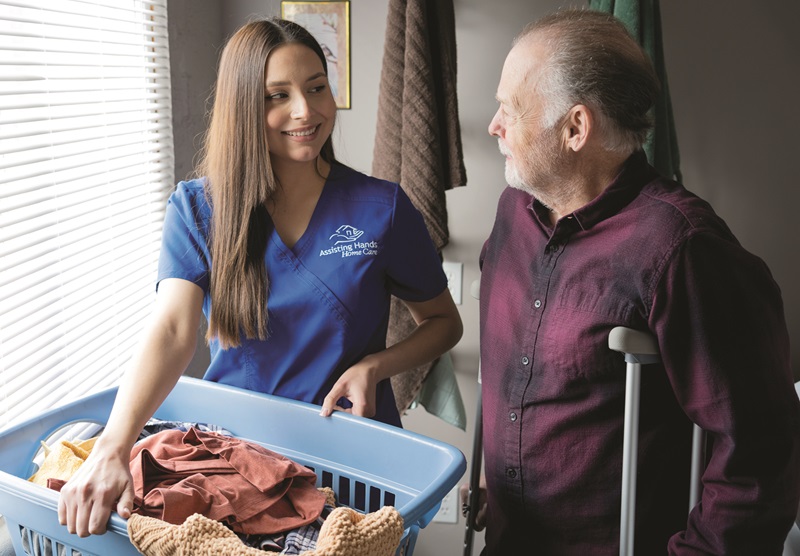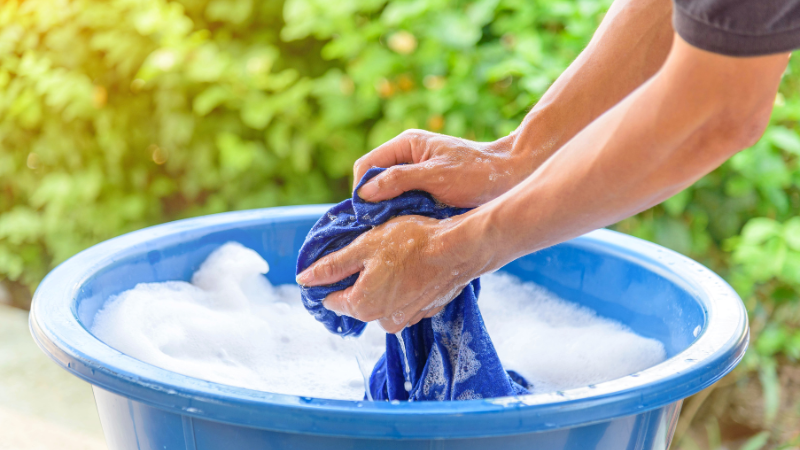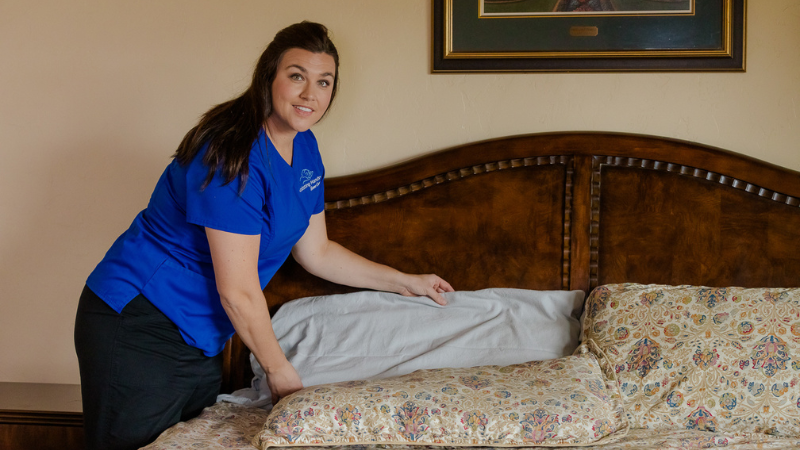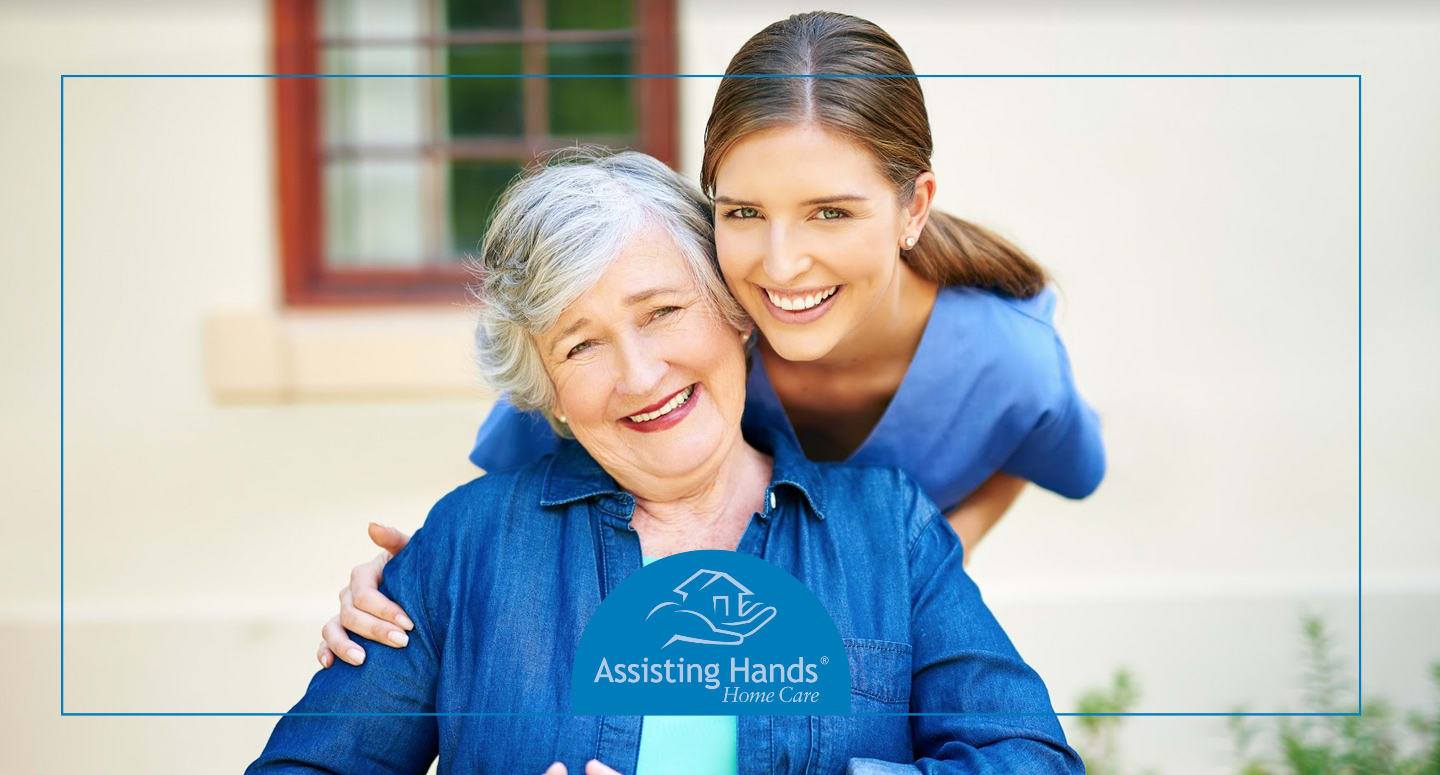

Incontinence issues and bathroom accidents are not uncommon among the elderly. Whether they are unable to make it to the bathroom on time or fail to take proper aim, misplaced urine can create stains and odors.
When an older adult suffers from urinary incontinence, urine spills are inevitable. Their pants become stained with urine and the fabric unleashes an odor. Caregivers are urged to act swiftly once an accident occurs, as urine stains are successfully treated when wet. Here’s how to get these unpleasant urine odors out of senior’s clothes.
Why does urine have an odor?
Urine has an unpleasant odor because it contains uric acid, ammonia, and urea, which are chemicals the body creates when breaking down substances known as purines. Most uric acid dissolves in the blood and passes out through the body in urine. Additionally, urine also has waste that comes from the kidneys, which can cause the smell to become stronger.
Various factors can cause urine odors to be intensified, depending on the amount of waste that is present. Some common reasons for strong-smelling urine include:
- Dehydration
- Medications
- Diet
- Medical Conditions
How do caregivers remove urine odors from clothing?
It is important to have the correct supplies to remove urine odors, as regular laundry detergent may not do the job. Persistent urine odors can be removed with a variety of products that kill the enzymes present in urine. Following these steps can help you effectively remove urine odors and stains from fabrics.
Step 1: Gather Supplies
Elder caregivers should have basic supplies on hand to address bathroom accidents as soon as they happen. Common items to keep handy include a bucket for mixing cleaning solutions, a soft-bristled brush, a sponge, paper towels or old rags, and an oscillating fan.
Caregivers should also be sure to gather cleaning agents, such as oxygen-based bleach, laundry detergent, laundry disinfectant, distilled white vinegar, and dishwashing liquid. Another household staple that is effective for absorbing odors is baking soda. Keeping baking soda in reach is ideal for removing odors and stains.
Step 2: Act Quickly
When urine stains dry and set in place, it leaves a foul odor behind. Caregivers must attempt to clean the urine stain as soon as possible after the bathroom accident. Prompt action results in greater success in removing not only the urine stain but also the accompanying odors.
Step 3: Remove Excess Urine from Clothing
Use the old rag or paper towels to blot away excess urine. Avoid rubbing the urine stain or pressing too hard during blotting as this can spread the stain. Alternately, remove the excess urine, if still wet, by running the garment under a stream of very hot water.

Step 4: Soak in a Baking Soda Bath
Before washing the urine-stained clothing using laundry detergent, soak them in a mixture of warm water and baking soda. Create a solution by adding baking soda to a sink or bathtub and filling it with warm water to create a cleansing solution. Agitate the water so that the baking soda disperses evenly. Submerge the smelly clothing into the baking soda bath and allow it to sit for 15 minutes to allow the baking soda to break down the uric acid.
Step 5: Rinse Thoroughly
During these 15 minutes, the baking soda works to break down the uric acid present on the stained clothing. Rinse the garments thoroughly to prevent the high pH in the baking soda from interfering with the processes during the next step: washing with laundry detergent.
Step 6: Launder the Clothes
Load the urine-stained clothing into the washing machine. Wash using the normal cycle at the warmest wash temperature indicated on the garment care label. Be sure to read the instructions on the clothing’s care label before washing to avoid causing damage to the fabric.
Step 7: Inspect the Garments
Check the garments for stains or odors. If the urine odors persist, repeat the abovementioned steps before drying—but add a half cup of baking soda along with the detergent when laundering. Caregivers should be aware that hot temperatures, such as from the washing machine, can set in urine stains.

Step 8: Dry the Clothes
The clothing’s care label should provide instructions for the proper drying of the fabric. Follow these instructions to ensure the clothes are fully dry. Thorough drying before storing the clothes is essential to preventing other smells, such as mold or mildew, from developing.
What alternate products help remove urine odors?
If the baking soda fails to eliminate the urine odors from the senior’s clothing, caregivers can resort to alternate solutions. Ammonia, for instance, is effective at removing odors. Add this potent chemical compound to the wash along with the detergent.
Borax is equally effective in removing urine odors from garments. This household cleaner should be used carefully, however, as it can damage the skin upon contact. Add a half cup of borax to the laundry load and enjoy fresh-smelling clothes once they come out.
Caregivers who work with seniors commonly face urine-stained clothing and the accompanying odors. While urine can cause odors on clothing, it can also lead to stains and smells on bedsheets, mattresses, and even upholstery. The best caregivers handle these issues discreetly and respectfully.
How can caregivers assist with incontinence?
When your aging loved one suffers from urinary incontinence, spends most of their time in bed, or has a tendency to not get to the bathroom in time, a compassionate caregiver from Assisting Hands Home Care can help to keep the senior clean and comfortable. Our team of caregivers is dedicated to helping seniors experiencing incontinence. We provide discreet assistance with personal hygiene tasks, like bathing and toileting.
Your aging loved one won’t feel embarrassed with our respectful support with incontinence issues or simple bathroom accidents. Care services help seniors feel confident and comfortable in their everyday lives.

Professional Home Care Services
We offer a range of additional quality in-home care services, including companion care. Our professional caregivers remain by your loved one’s side to give them companionship. We engage socially with our care recipients to ensure they remain stimulated and avoid loneliness and isolation.
Companion caregivers from our reputable home care agency play games, assemble puzzles, join seniors as they pursue hobbies, and take them on outings. Our friendly conversations with our care recipients uplift them and ensure they feel valued and cared for.
Companion care is ideal for seniors who cannot provide self-care. In addition to enjoyable companionship, our caregivers prepare nutritious meals, give medication reminders, perform light housekeeping, and offer transport and escort to local destinations, like medical offices.
Seniors who could use a pleasant companion will find one at Assisting Hands Home Care in Sarasota, FL. Our professional caregivers are privileged to serve the elderly living in Sarasota, Florida, and the neighboring areas in Sarasota County. Schedule a free in-home consult and learn how reliable elder care enhances the quality of life at (813) 868-6782.

